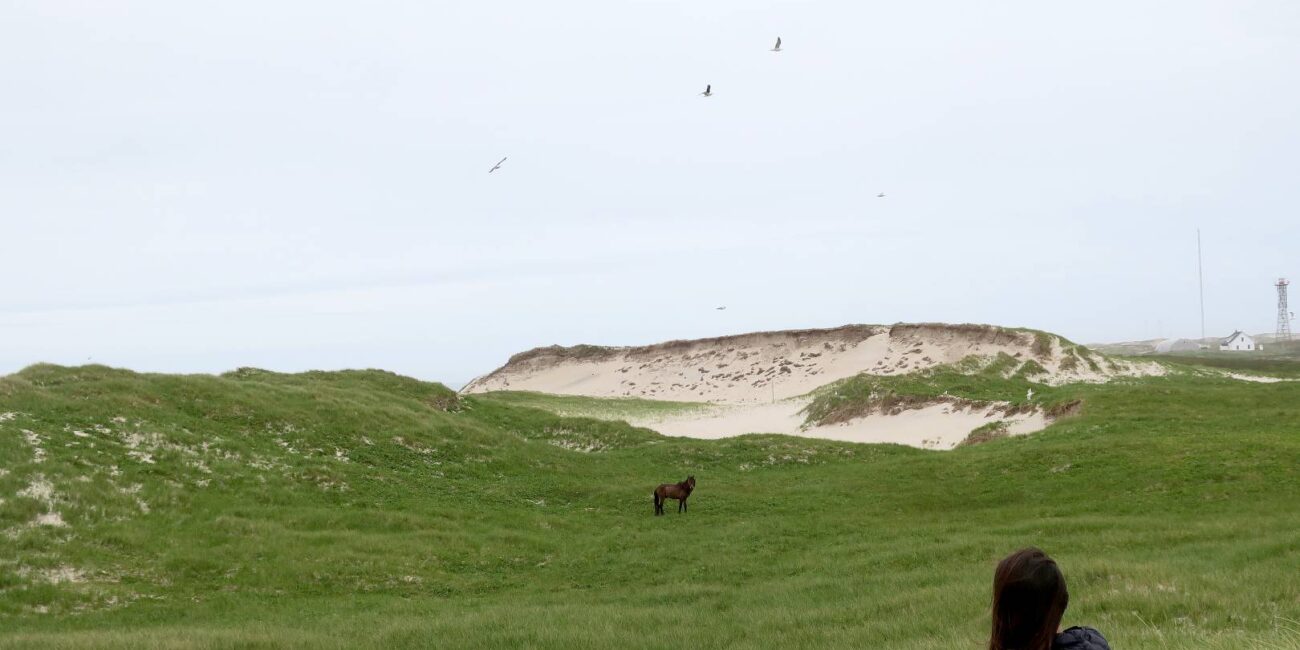Coffee is bad for dogs as it contains caffeine, a substance that is toxic to them and can cause serious health problems. Introducing coffee into a dog’s diet can lead to symptoms such as restlessness, increased heart rate, tremors, vomiting, and even seizures or death in severe cases.
It’s important to keep coffee and other caffeinated products out of reach of dogs to prevent accidental ingestion and potential harm. Instead, provide your furry friend with dog-friendly alternatives like water, dog-safe treats, or specially formulated dog-friendly beverages. Ensuring a caffeine-free environment is crucial for your dog’s well-being.

Credit: discoverhalifaxns.com
The Effects Of Coffee On Dogs
Coffee is a popular beverage enjoyed by many, but have you ever wondered if it’s safe for our furry friends? As much as we love our dogs, it’s crucial to understand the risks involved with certain foods and drinks. We’ll explore the effects of coffee on dogs, specifically focusing on coffee intoxication, the impact of caffeine on a dog’s nervous system, and how it can affect their heart rate.
Let’s dive in and learn more about the potential dangers of coffee for our beloved canines.
Understanding The Risks: Coffee Intoxication In Dogs
- Dogs are much more sensitive to the effects of caffeine compared to humans. They metabolize caffeine much more slowly, leading to a buildup of toxic levels in their system.
- Coffee intoxication in dogs can occur from ingesting even small amounts of coffee or any caffeinated product.
- Symptoms of coffee intoxication may include restlessness, tremors, rapid breathing, increased heart rate, seizures, and in severe cases, it can even be fatal.
The Impact Of Caffeine On A Dog’s Nervous System
- Caffeine acts as a stimulant to the central nervous system in dogs, just as it does in humans.
- When consumed, caffeine can cause an increase in excitability, leading to nervousness and even anxiety in dogs.
- Dogs may exhibit symptoms such as pacing, hyperactivity, muscle tremors, and difficulty relaxing or sleeping.
Coffee And Its Effect On A Dog’s Heart Rate
- Caffeine has a direct effect on a dog’s heart rate, leading to an increase in heart rate and blood pressure.
- An elevated heart rate can put a strain on a dog’s cardiovascular system, potentially leading to heart problems and in extreme cases, cardiac arrhythmias.
- It’s essential to monitor a dog’s heart rate if coffee ingestion occurs, as it can help determine the severity of their condition.
Remember, the effects of coffee on dogs can be incredibly harmful, and it’s best to keep caffeine-containing products out of their reach. If you suspect your dog has ingested coffee or displays any of the aforementioned symptoms, it is crucial to seek immediate veterinary care.
Keeping our furry friends safe means being aware of what they can and cannot consume, and in the case of coffee, the risks far outweigh any potential benefits.
Symptoms Of Coffee Intoxication In Dogs
Are you a coffee lover with a furry friend at home? It’s important to know that coffee and dogs don’t mix well. In fact, coffee can be toxic to dogs and can lead to serious health issues if ingested in large amounts.
But how do you recognize the symptoms of coffee intoxication in dogs? Let’s take a closer look at the signs to watch out for.
Recognizing The Signs: How Coffee Intoxication Presents In Dogs
When a dog ingests caffeine, whether by drinking coffee or consuming other products containing caffeine, it can lead to coffee intoxication. The symptoms of coffee intoxication in dogs can vary depending on several factors, including the amount of caffeine ingested and the size of the dog.
Here are some key points to keep in mind:
- Dogs may show signs of restlessness and hyperactivity. They may be excessively active and display anxious behaviors.
- Increased heart rate and rapid breathing are common symptoms of coffee intoxication. Your dog’s heart may beat faster than usual, and they may pant excessively.
- Muscle tremors and twitching can be observed in dogs affected by coffee intoxication. These involuntary movements can be distressing for both you and your furry friend.
- Dogs may experience gastrointestinal issues such as vomiting and diarrhea. These symptoms can lead to dehydration and further complications.
Understanding The Difference Between Mild And Severe Symptoms
It’s essential to understand that the symptoms of coffee intoxication can range from mild to severe, depending on the severity of the caffeine ingestion. Here are a few key points to help you assess the seriousness of your dog’s condition:
- Mild symptoms, such as restlessness and increased heart rate, are usually experienced when a small amount of caffeine is ingested.
- As the caffeine consumption increases, more severe symptoms may manifest. This includes muscle tremors, vomiting, and diarrhea.
- In severe cases, dogs may experience seizures, collapse, or even go into a coma. These symptoms indicate a life-threatening situation, requiring immediate veterinary attention.
Remember, even if your dog exhibits mild symptoms, it’s crucial to monitor their condition closely. Coffee intoxication can rapidly escalate and result in severe complications if not addressed promptly.
When To Seek Veterinary Attention For A Suspected Coffee Intoxication
If you suspect that your dog has ingested coffee or any caffeine-containing product, it’s important to act quickly. While some mild cases can be managed at home, it’s advisable to consult your veterinarian for professional guidance. Here are a few situations where seeking veterinary attention is highly recommended:
- If your dog has consumed a substantial amount of coffee or a highly concentrated source of caffeine, immediate veterinary assistance is necessary.
- When your dog displays severe symptoms such as seizures, collapse, or loss of consciousness, emergency care is essential.
- If you’re unsure about the caffeine content or the potential risk to your dog’s health, it’s always better to err on the side of caution and consult your veterinarian.
Remember, your dog’s well-being is of utmost importance. By promptly recognizing the symptoms of coffee intoxication and seeking appropriate veterinary care, you can help ensure the best possible outcome for your furry companion.
Treatment And Prevention Of Coffee Intoxication In Dogs
Dogs are curious creatures who often get into things they shouldn’t. Coffee, with its enticing aroma and bold taste, is one such item that can pose a danger to our furry friends. While many of us enjoy our morning cup of joe, it’s essential to understand the potential risks coffee can have on dogs.
In this section, we will explore the treatment and prevention of coffee intoxication in dogs to ensure their well-being and safety.
Immediate Steps To Take When A Dog Ingests Coffee
In the unfortunate event that your dog ingests coffee, it’s crucial to take immediate action. Here are the key steps to follow:
- Stay calm: Although the situation can be alarming, it’s important to remain composed to ensure effective action.
- Contact your veterinarian: Reach out to your vet or an emergency animal clinic right away for guidance and advice.
- Provide information: Be ready to provide details about the coffee type, quantity ingested, and the dog’s size, breed, and health history.
- Do not induce vomiting: While this may be the instinctive response, it is not recommended unless specifically instructed by a professional.
- Monitor vital signs: Keep an eye on your dog’s breathing, heart rate, and overall behavior while awaiting further instructions.
The Role Of Activated Charcoal In Coffee Intoxication Treatment
Activated charcoal can play a crucial role in the treatment of coffee intoxication in dogs. Here’s what you should know:
- Adsorption properties: Activated charcoal can adsorb toxins, including those present in coffee, within the gastrointestinal tract.
- Reduces absorption: By administering activated charcoal, the absorption of coffee into the bloodstream can be minimized.
- Medical professional guidance: The use of activated charcoal should always be under the supervision and guidance of a veterinarian.
- Proper dosage administration: It’s crucial to follow your vet’s instructions regarding the appropriate dosage and administration method of activated charcoal.
Preventive Measures: How To Safeguard Dogs From Coffee Exposure
Preventing coffee intoxication in dogs is essential for their well-being. Here are some preventive measures to safeguard your furry friend:
- Secure coffee access: Store coffee grounds, beans, or brewed coffee in sealed containers and keep them out of your dog’s reach.
- Safe disposal: Dispose of coffee grounds and filters in lidded trash cans to prevent dogs from sniffing around and potentially ingesting them.
- Awareness in social settings: Educate your friends and family about the risks of coffee to dogs and advise against offering it to your pet.
- Alternative beverages: If you enjoy caffeine, consider opting for pet-friendly beverages like herbal teas or plain water when dogs are present.
- Supervision and training: Keep an eye on your pet and reinforce obedience training to discourage them from exploring coffee or other harmful substances.
By being aware of the immediate steps to take when a dog ingests coffee, understanding the role of activated charcoal in treatment, and implementing preventive measures, we can ensure our furry friends are protected from the potential dangers of coffee intoxication.
Remember, their safety and well-being should always be our top priority.
Coffee Alternatives For Dogs
Is Coffee Bad For Dogs?
Exploring Healthy Alternatives To Coffee For Canines
While many of us enjoy our morning cup of coffee to kickstart our day, it’s important to remember that coffee is not a safe beverage for our furry friends. The caffeine content in coffee can be toxic to dogs and lead to various health issues.
Thankfully, there are some healthy alternatives you can consider to keep your canine companion happy and hydrated.
Understanding The Benefits Of Dog-Specific Beverages
Dog-specific beverages offer a range of benefits for your furry friend. These specially formulated drinks provide hydration, essential nutrients, and flavors that dogs love. Some key benefits of dog-specific beverages include:
- Hydration: Just like humans, dogs need to stay hydrated. Dog-specific beverages are a great way to ensure your dog gets enough fluids throughout the day.
- Nutritional value: Certain dog-specific beverages are packed with essential nutrients, vitamins, and minerals that support overall health and well-being.
- Flavor variety: Dog-specific beverages come in a variety of flavors, catering to different taste preferences. From chicken broth to beef-flavored drinks, there are options to please even the pickiest pups.
Homemade Vs. Store-Bought: Which Coffee Substitutes Are Safe For Dogs?
When it comes to coffee substitutes for dogs, you have two options: homemade or store-bought beverages. Both options can be safe, but it’s important to understand the ingredients and choose wisely. Here’s a breakdown of each:
Homemade beverages:
- Watered-down bone broth: A homemade bone broth can be a nutritious and flavorful alternative for dogs. Ensure that the broth does not contain any harmful ingredients like onions or garlic.
- Herbal teas: Certain herbal teas like chamomile or mint can be a soothing and safe option for dogs. However, always check that the herbs used are non-toxic for canines.
Store-bought options:
- Dog-specific drinks: Many pet stores offer a range of dog-specific beverages that are specifically formulated with canine health in mind. These drinks often contain natural, dog-friendly ingredients that provide hydration and nutritional value.
- Dog-friendly sports drinks: Some brands have introduced sports drinks specially designed for dogs. These drinks contain electrolytes and can be beneficial for active and energetic pups.
Remember, it’s always essential to consult with your veterinarian before introducing any new beverages to your dog’s diet. They can provide personalized advice and recommendations based on your dog’s specific needs.
By exploring healthy alternatives and understanding the benefits of dog-specific beverages, you can provide your furry friend with safe and enjoyable hydration options. Keep in mind that moderation is key, and always prioritize the well-being of your four-legged companion.
Educating Dog Owners: Spreading Awareness
Is coffee bad for dogs? This is a question that many pet owners have asked themselves at some point. Coffee contains caffeine, which is a stimulant that affects the central nervous system. While humans can safely consume moderate amounts of caffeine, the same cannot be said for our furry friends.
The purpose of this blog post is to educate dog owners about the potential dangers of coffee consumption for dogs and how to safely enjoy coffee while owning a dog. By spreading awareness about coffee toxicity in canines, we can promote the safety and well-being of our beloved pets.
So, let’s dive in and explore the importance of educating pet parents on coffee toxicity, ways to safely enjoy coffee with a dog, and the significance of spreading the word about coffee toxicity in canines.
Importance Of Educating Pet Parents On Coffee Toxicity
- Coffee contains caffeine, which can be toxic to dogs.
- Dogs are more sensitive to the effects of caffeine compared to humans.
- Educating pet parents about coffee toxicity can help prevent accidental ingestion and potential health risks for dogs.
- Knowing the symptoms of caffeine poisoning in dogs can help identify and address any emergencies promptly.
Ways To Safely Enjoy Coffee While Owning A Dog
- Limit your dog’s exposure to coffee and any products containing caffeine.
- Store coffee and caffeine-containing items securely, out of your dog’s reach.
- Opt for caffeine-free alternatives such as herbal teas or decaffeinated coffee when enjoying a hot beverage with your furry friend nearby.
- Be cautious with garbage cans and dispose of coffee grounds or coffee-related items safely to prevent dogs from getting access to them.
Promoting Safety: Spreading The Word About Coffee Toxicity In Canines
- Share articles and resources about coffee toxicity in dogs on social media platforms to raise awareness.
- Encourage responsible coffee consumption practices by discussing the topic with fellow dog owners.
- Consult with veterinarians and animal welfare organizations to spread the message and educate a wider audience.
- Create informative and engaging content, such as blog posts and infographics, to disseminate knowledge about the dangers of coffee for dogs.
By educating pet parents on coffee toxicity in dogs, we can ensure the health and well-being of our canine companions. Remember, prevention is always better than cure, and with the right knowledge, we can all enjoy our coffee without putting our furry friends at risk.
Stay informed, spread awareness, and let’s create a safer environment for our beloved dogs.
Frequently Asked Questions For Is Coffee Bad For Dogs?
Can Dogs Drink Coffee?
Coffee is not safe for dogs to consume. It contains caffeine, which can be toxic and harmful to their health.
What Happens If A Dog Drinks Coffee?
If a dog drinks coffee, it can lead to symptoms such as restlessness, increased heart rate, tremors, vomiting, and even seizures. Immediate veterinary attention is necessary.
Is Decaffeinated Coffee Safe For Dogs?
While decaffeinated coffee has lower levels of caffeine, it is not safe for dogs. Even small amounts can still be harmful and should be avoided.
What Are The Signs Of Caffeine Poisoning In Dogs?
Signs of caffeine poisoning in dogs include hyperactivity, rapid breathing, increased thirst, irregular heart rhythm, and in severe cases, collapse or even death. Seek veterinary care if you suspect caffeine poisoning.
Can Dogs Have Any Coffee Alternatives?
Coffee alternatives like herbal teas or bone broth can be safe for dogs to consume in moderation, but it’s always best to consult with a veterinarian before introducing any new food or drink into their diet.
Conclusion
To sum it up, it’s important to remember that coffee can be harmful to dogs due to its high caffeine content. Caffeine can lead to various symptoms such as increased heart rate, restlessness, tremors, and even seizures. Dogs are more sensitive to caffeine than humans, so even a small amount can have severe effects.
As responsible pet owners, it is crucial to keep coffee and other caffeinated products out of their reach. If you suspect that your dog consumed coffee, it is essential to monitor their behavior closely and contact a veterinarian immediately if any adverse symptoms occur.
Remember, there are safer alternatives to share special moments with your furry friend, such as dog-friendly treats and toys. Prioritizing their well-being ensures a healthier and longer life for your beloved companion.









